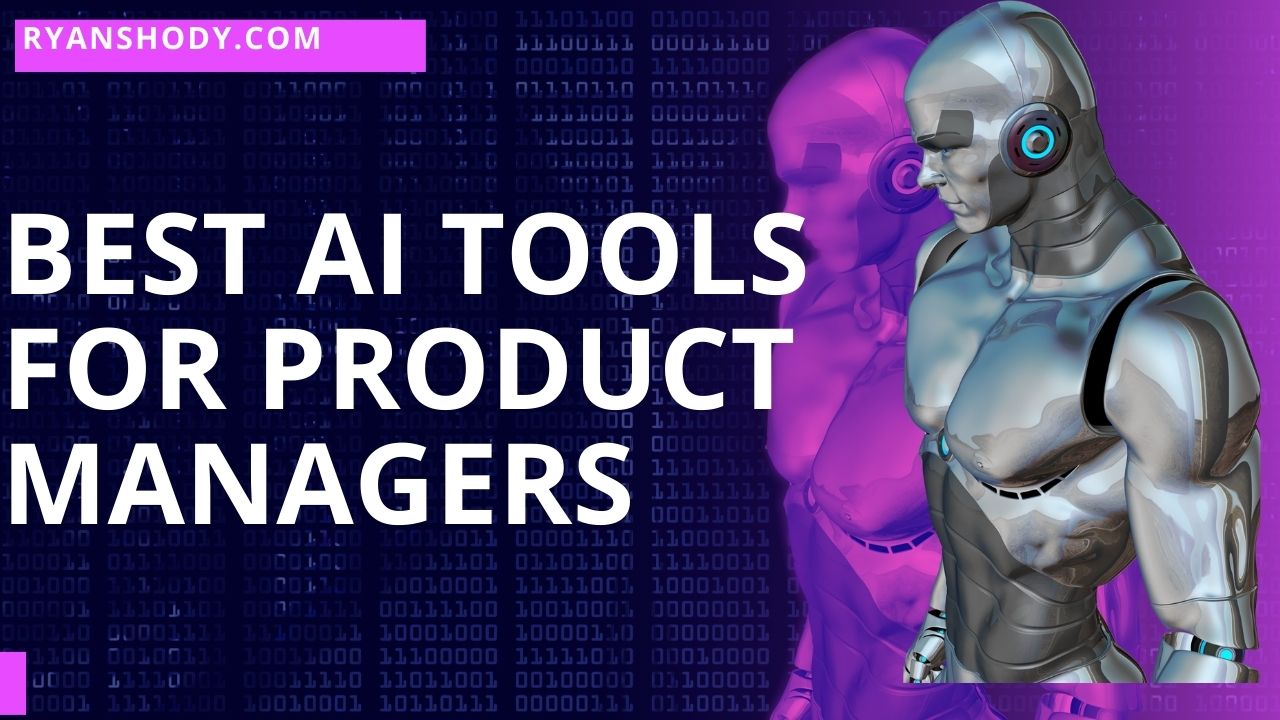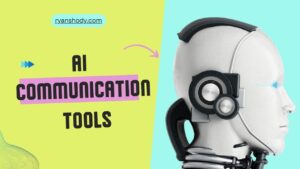In the rapidly evolving field of product management, the best AI tools for product managers play a pivotal role in driving efficiency and innovation.
These tools, equipped with cutting-edge artificial intelligence capabilities, are transforming the landscape of project management, market analysis, and customer relationship management.

They stand out not just for their ability to streamline complex processes, but also for their capacity to provide deep, actionable insights.
This makes them indispensable for product managers who are tasked with navigating through the challenges of a dynamic business environment.
How do AI Tools Help Product Managers?
In the realm of product management, AI tools are game-changers. The best AI tools for product managers significantly streamline their workflow by integrating advanced features like Predictive Analytics and Data Visualization.
These tools analyze and present complex data in an easily understandable format, aiding in making informed decisions quickly.
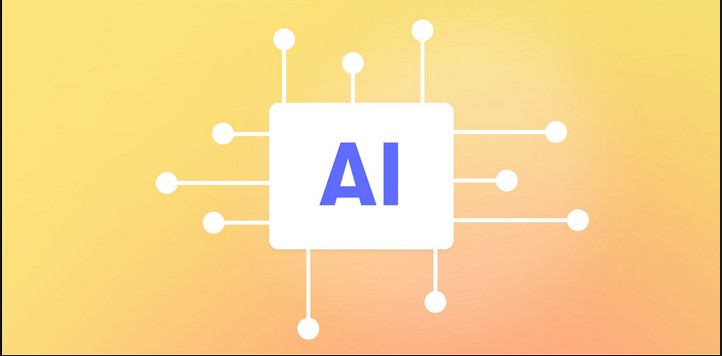
Furthermore, Resource Optimization is a key benefit, ensuring efficient use of time and budget. Staying ahead in the competitive market is made easier with Market Intelligence, providing real-time insights into trends and competitor strategies.
UX Personalization is another crucial aspect, where AI tools help in creating more engaging and user-friendly products.
Benefits of Using AI Tools for Product Managers
- Data-driven decisions: AI tools analyze data for insights, aiding in prioritizing features and optimizing roadmaps.
- Better customer understanding: AI analyzes user behavior, feedback, and trends to tailor products to customer needs.
- Efficient resource allocation: Automation of tasks frees up time for strategic initiatives and innovation.
- Enhanced innovation: AI uncovers new opportunities and predicts trends, fostering product innovation.
- Faster time-to-market: Automation accelerates development processes, enabling quick responses to market changes.
- Personalized user experiences: AI personalization improves engagement and loyalty by catering to individual preferences.
- Continuous improvement: Real-time feedback loops facilitate iterative product enhancements based on user insights.
Best AI Tools for Product Managers
In today’s dynamic business world, product managers require robust tools to stay ahead.
These tools are not just about automation and streamlining of processes; they also provide deep insights through analytics, crucial for product managers to steer through complex projects and market trends.
Below is a list of some of the best AI tools that have proven to be particularly beneficial for product managers in various sectors:
- Trello (Butler): Automates tasks, rules, and commands on Trello boards, enhancing project management and collaboration.
- Asana: Aids in project planning and workload management, with AI integration for improved efficiency.
- Crisp: Offers market intelligence and consumer demand insights, key for informed decision-making.
- Monday.com: Features advanced AI tools for project management, ideal for tracking and optimizing team workflows.
- HubSpot: Integrates AI in CRM for sophisticated sales forecasting, customer service automation, and content management.
- Freshworks: Provides AI-driven solutions for customer engagement, CRM, and IT service management.
- Semrush: Equipped with AI tools for SEO, market analysis, and online marketing, offering comprehensive insights.
1. Trello (Butler)
Trello (Butler) – Best for Task Automation

Ryanshody’s Pick for Smarter Collaboration
With Trello Butler, you get:
- Automated tasks, rules, and commands on Trello boards
- Reduced manual work and faster project updates
- Enhanced team collaboration and workflow efficiency
Trello (Butler), a powerful automation tool, stands out as one of the best AI tools for product managers, offering unparalleled Workflow Automation capabilities.
It revolutionizes Task Management through its advanced Rule-Based Triggers, which automatically perform actions based on predefined rules.

This feature significantly reduces manual effort, allowing managers to focus on strategic decisions rather than mundane tasks.
Pros
- Board Customization: Butler allows for extensive customization of Trello boards, making it adaptable to various project needs.
- Efficiency Optimization: By automating repetitive tasks, it streamlines workflows, enhancing overall productivity.
- Integration and Coordination: Trello (Butler) integrates seamlessly with other tools, ensuring smooth project management across different platforms.
Cons
- Learning Curve: The setup of complex automation rules can be initially daunting, especially for newcomers.
- Advanced Features Limited to Paid Plans: While the free version offers basic functionality, the more sophisticated features require a premium subscription.
User Experience
Users typically enjoy a positive experience with Trello (Butler), often regarded as one of the best AI tools for product managers.
They appreciate its ability to significantly reduce time spent on routine tasks and improve project organization.
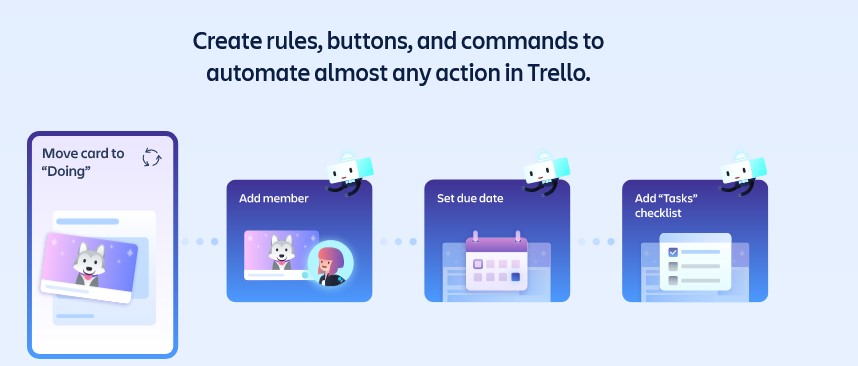
The tool’s effectiveness in streamlining processes and enhancing overall productivity makes it a highly valued asset, despite the initial investment in learning its functionalities.
Pricing Plan :
Trello (Butler) operates on a tiered pricing model. It includes a free version for individuals or small teams, with more advanced features available in paid plans, catering to larger teams and enterprises.
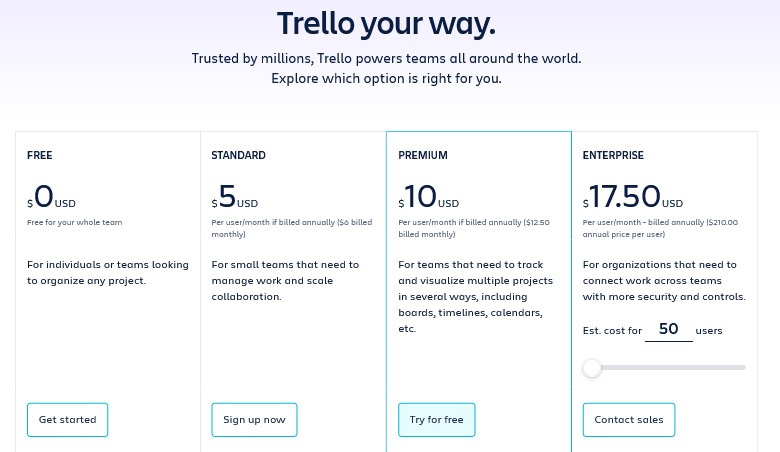
2. Asana
Asana – Best for Project Planning
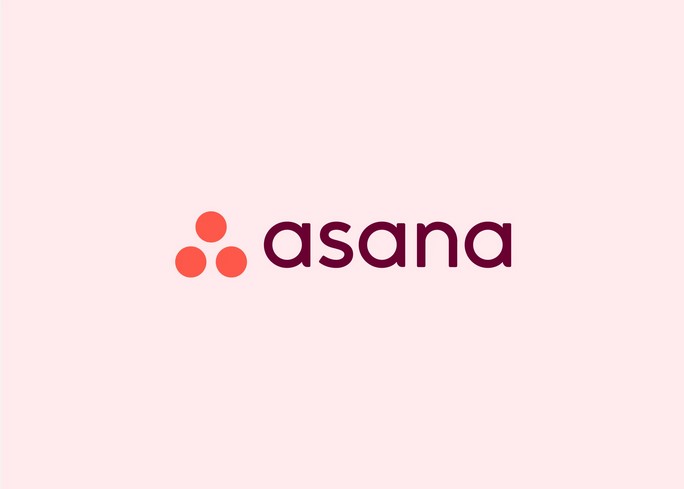
Ryanshody’s Pick for Organized Teams
With Asana, you benefit from:
- AI-powered project planning and workload management
- Smarter task prioritization and deadline tracking
- Improved efficiency with automated reminders and updates
Asana stands as a leading contender in the realm of best AI tools for product managers, offering an intuitive platform for Project Tracking and Team Collaboration.
Its robust design is tailored to facilitate Milestone Setting and Task Prioritization, making it an ideal choice for managing complex projects.
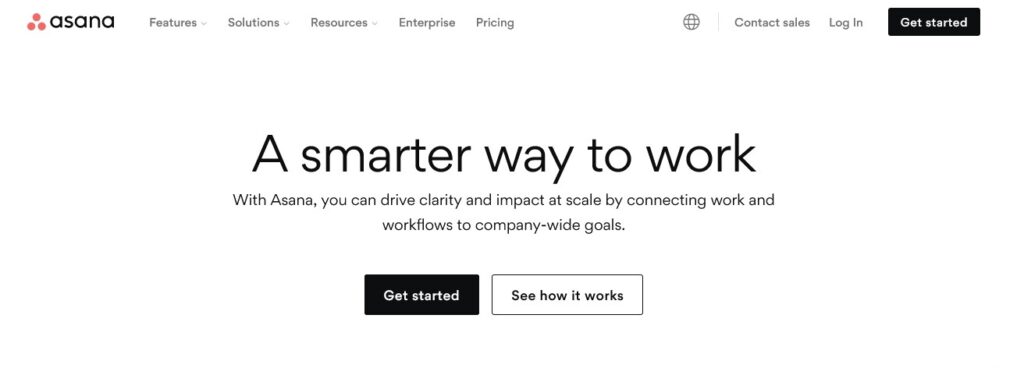
Asana’s interface is user-friendly, allowing teams to visualize their projects through various views, including lists, boards, and timelines. It integrates Real-Time Reporting features, providing managers with up-to-date insights on project progress.
Pros
- Team Collaboration: Asana excels in fostering team communication and collaboration, with features that enable sharing of tasks, updates, and feedback.
- Workflow Streamlining: Its ability to streamline workflows helps in maintaining project efficiency and keeping teams on track.
- Milestone Setting and Tracking: This tool is adept at setting clear project milestones and tracking them effectively, ensuring timely project completion.
Cons
- Overwhelming for Beginners: The plethora of features can be overwhelming for new users.
- Limited Advanced Features in Free Version: While Asana offers a free version, the most advanced features are reserved for premium subscribers.
User Experience
Most users report a positive experience with Asana, often highlighting it among the best AI tools for product managers. They cite its comprehensive set of features and ease of use as key factors.
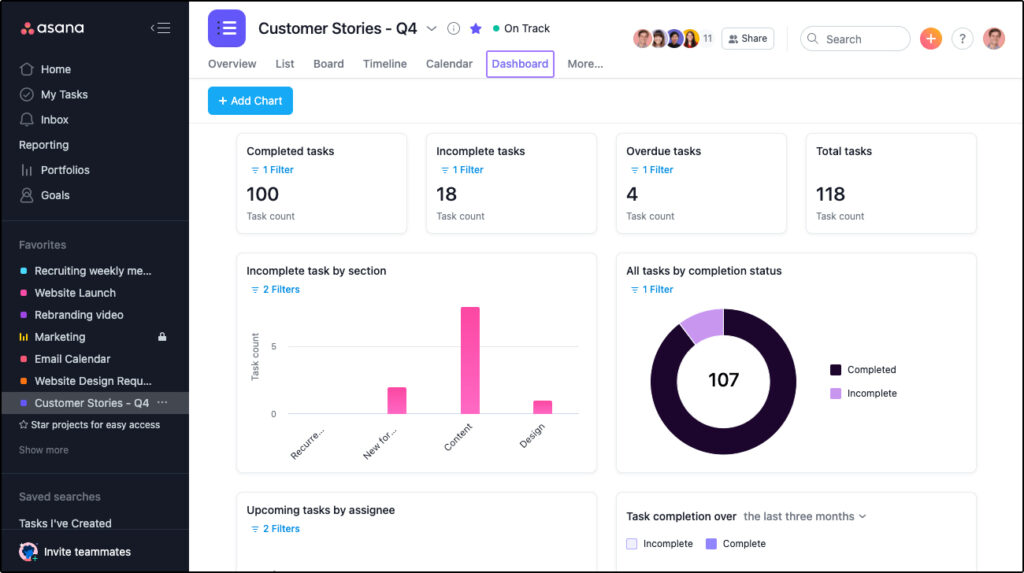
Asana’s adeptness at handling complex project requirements and enhancing team productivity solidifies its reputation as a top choice for product managers seeking efficient and effective project management solutions.

Pricing Plan
Asana offers a free basic plan, ideal for individuals or small teams. Its premium and enterprise plans, which come with additional features and capabilities, are tiered in pricing to accommodate various business sizes and needs.
3. Crisp
Crisp – Best for Market Intelligence

Ryanshody’s Pick for Data-Driven Decisions
With Crisp, you get:
- Real-time consumer demand and market insights
- AI-powered analytics for forecasting trends
- Smarter, informed decision-making for product strategies
Crisp, a dynamic player in the best AI tools for product managers, specializes in enhancing customer engagement through Real-Time Analytics and Customer Interaction.
It’s a unified messaging platform designed to streamline communication across various channels.
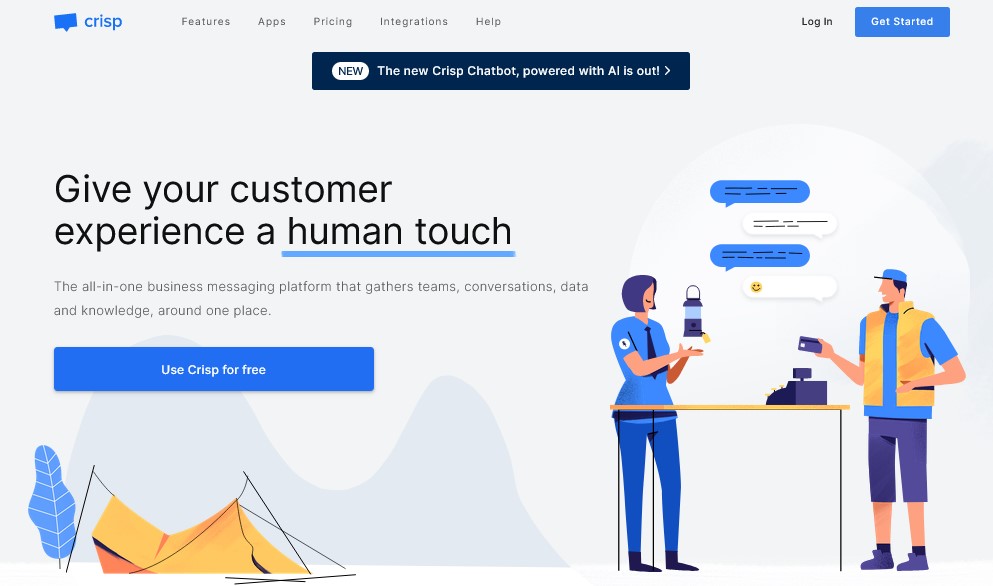
Crisp offers a unified solution for customer messaging, combining emails, SMS, chat, and social media interactions into one platform. It’s equipped with Automation Bots to handle routine inquiries, leaving more complex issues for human agents.
The platform excels in Multichannel Support, allowing teams to interact with customers across different platforms seamlessly.
Pros
- Unified Messaging: Streamlines communication by consolidating messages from different channels.
- Real-Time Analytics: Provides instant insights into customer interactions and behaviors.
- Feedback Collection: Facilitates easy collection and analysis of customer feedback, vital for product development and improvement.
Cons
- Complexity in Setup: Initial setup and integration can be complex, especially for larger teams.
- Learning Curve: Some users may take time to fully utilize all features effectively.
User Experience
Users generally appreciate Crisp as one of the best AI tools for product managers due to its comprehensive approach to customer communication and analytics.
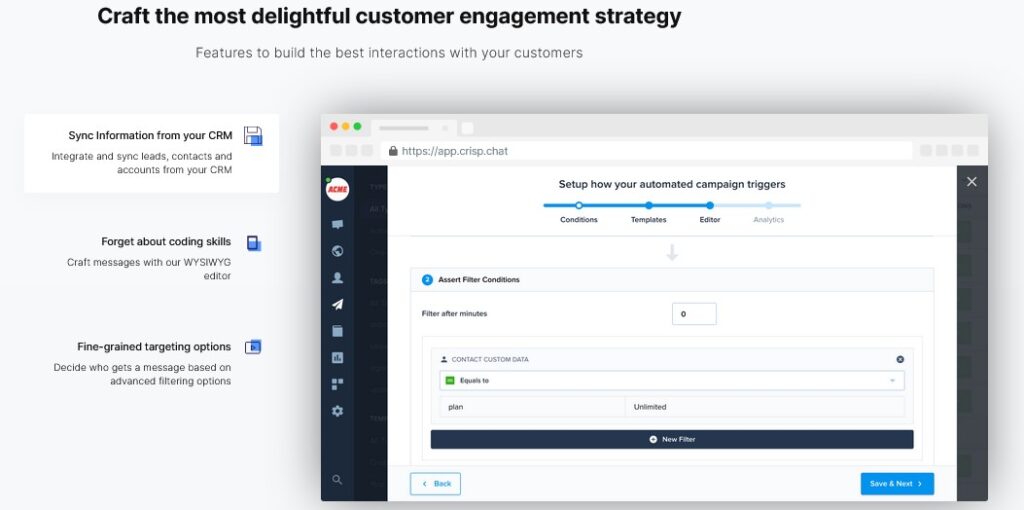
The tool’s ability to provide a holistic view of customer interactions and feedback has established it as a valuable asset for product managers, enhancing their capabilities in managing customer relations and insights effectively.
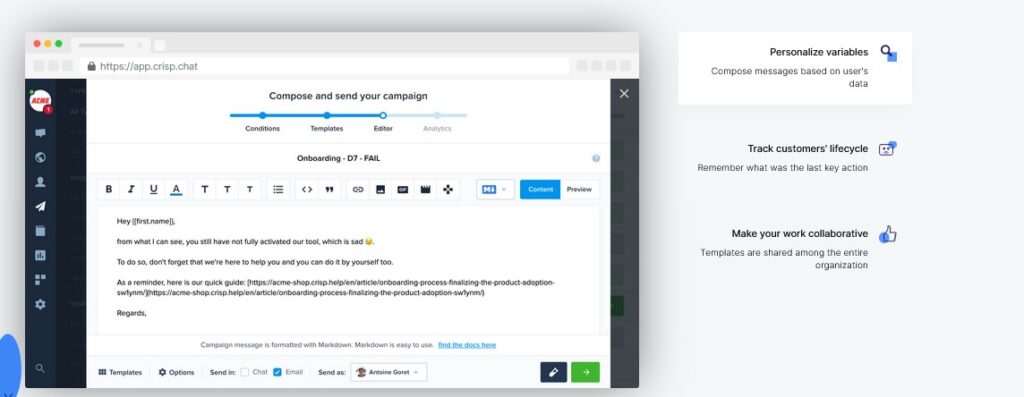
Pricing Plan
Crisp offers a free version with basic features, suitable for small teams or startups. Its paid plans, offering more advanced features, are priced based on the scale of operations and additional functionalities required.
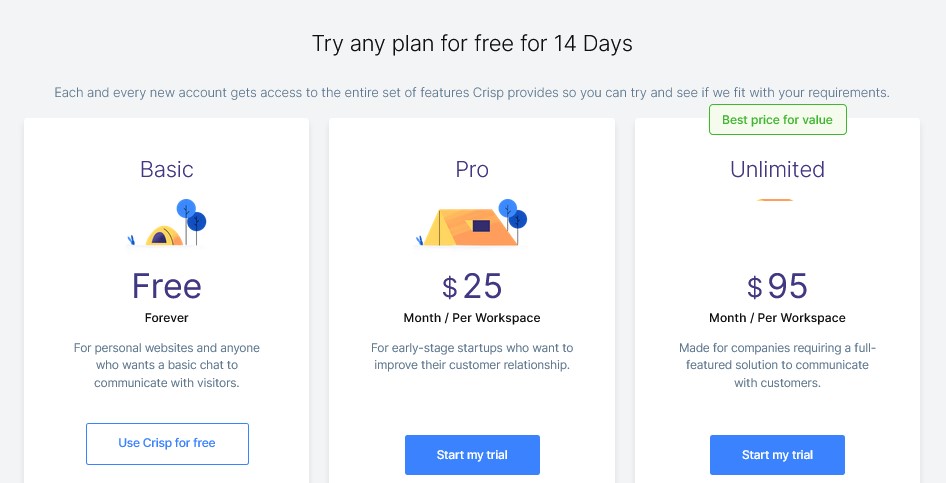
4. Monday.com
Monday.com – Best for Workflow Optimization

Ryanshody’s Pick for Agile Teams
With Monday.com, you enjoy:
- AI-driven project tracking and management tools
- Automated workflows to optimize team productivity
- Advanced dashboards for better performance insights
Monday.com is a standout among the best AI tools for product managers, offering a versatile and user-friendly platform for Visual Project Planning and Task Automation.
Renowned for its flexibility, Monday.com caters to various project management needs with Customizable Workflows and Collaborative Workspaces.

This tool is designed to enhance team collaboration and efficiency. It provides Integrated Dashboards that offer a comprehensive view of project progress and team performance. With its visually appealing interface, Monday.com facilitates easy tracking of tasks and deadlines, making Visual Project Planning an intuitive process.
Pros
- Collaborative Workspaces: Enhances team communication and collaboration, essential for remote and in-office teams.
- Data-Driven Insights: Offers valuable insights into project performance, helping in making informed decisions.
- Customizable Workflows: Allows teams to tailor their project management experience to their specific needs.
Cons
- Pricing Structure: Can be on the higher side for smaller teams or startups.
- Initial Learning Curve: New users may require time to fully grasp and utilize all features.
User Experience
Users generally report a positive experience with Monday.com, particularly praising its ease of use and the visual clarity it brings to project management.
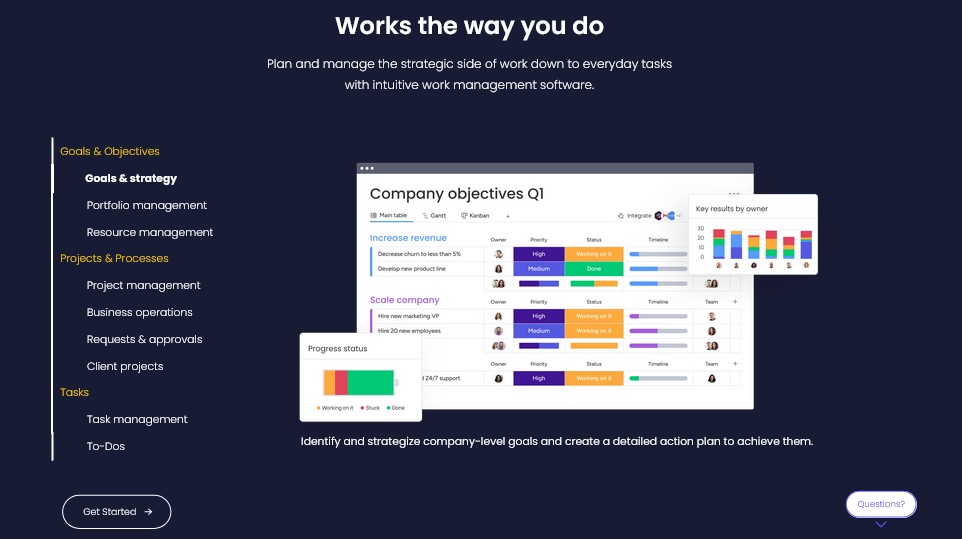
The tool’s adaptability to different project types and sizes makes it a favorite among product managers.
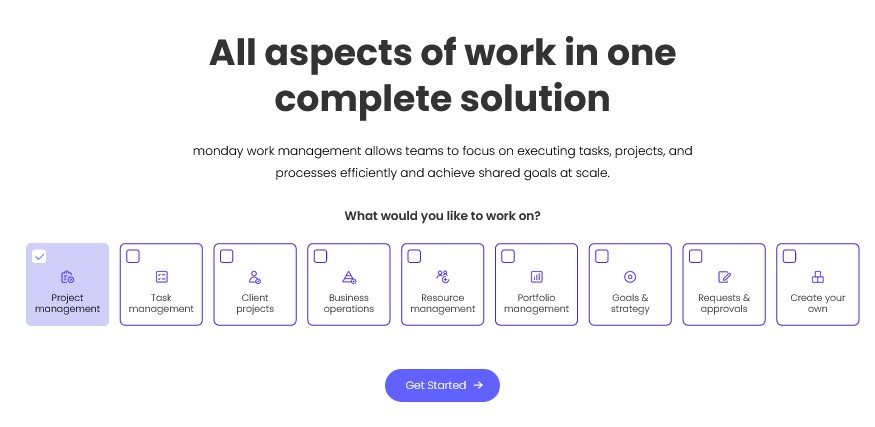
Pricing Plan
Monday.com offers a range of pricing tiers, starting from a basic free plan to more comprehensive paid options, catering to different sizes and types of teams.

5. HubSpot
HubSpot – Best for CRM & Automation
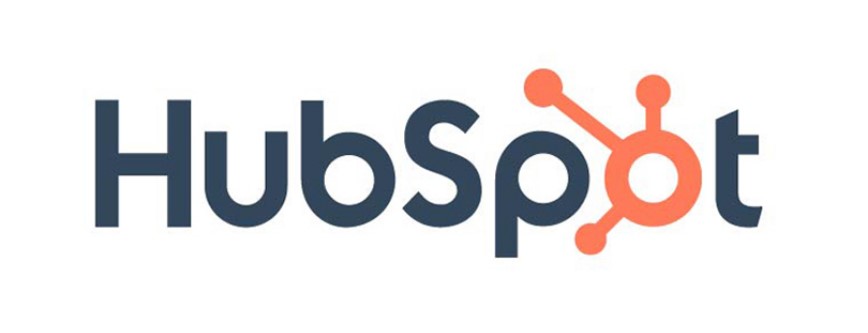
Ryanshody’s Pick for Growth-Focused Businesses
With HubSpot AI, you get:
- Intelligent sales forecasting and pipeline insights
- Automated customer service and chatbots
- Smarter content management and marketing tools
HubSpot, renowned in the realm of Best AI Tools for Product Managers, offers a comprehensive suite of services centered around Customer Relationship Management (CRM), Marketing Automation, and Sales Pipeline Analysis.
It’s a multifaceted platform that efficiently combines various aspects of business management and marketing strategies.
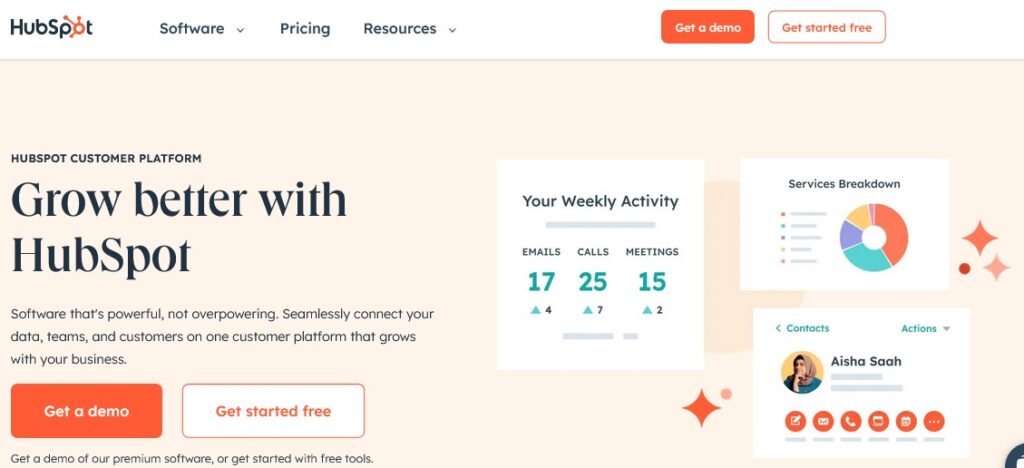
HubSpot provides an all-in-one solution for managing customer relationships, automating marketing efforts, and analyzing sales pipelines. Its capabilities extend to Lead Generation and Tracking, as well as Performance Analytics, making it a vital tool for data-driven decision-making.
Additionally, HubSpot includes a Content Management System (CMS), enabling seamless creation and management of digital content.
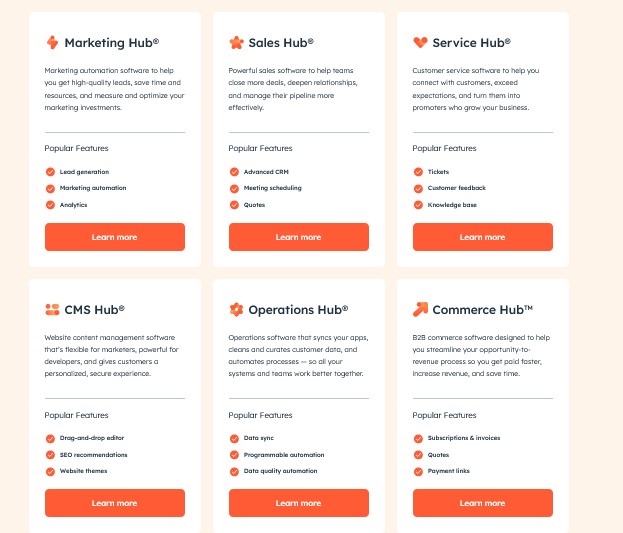
Pros
- Integrated CRM Platform: HubSpot’s CRM is intuitive and user-friendly, offering a 360-degree view of customer interactions.
- Comprehensive Marketing and Sales Tools: From email marketing to social media analytics, it covers a wide range of marketing needs.
- Data-Driven Insights: Provides detailed analytics for performance measurement and strategy refinement.
Cons
- Pricing: While HubSpot offers a free version, advanced features require a premium subscription, which can be pricey for small businesses.
- Complexity: The breadth of features can be overwhelming for new users, necessitating a learning curve.
Pricing Plan
HubSpot operates on a tiered pricing model. It starts with a free plan, suitable for basic CRM needs, and scales up to more advanced plans that cater to larger businesses with comprehensive requirements.

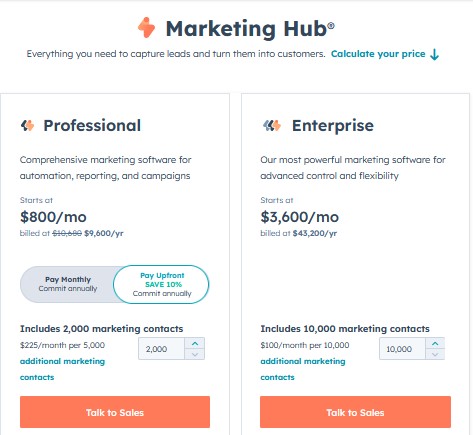
6. Freshworks
Freshworks – Best for Customer Engagement

Ryanshody’s Pick for All-in-One Business Tools
With Freshworks AI, you benefit from:
- AI-powered CRM for stronger customer relationships
- Smart automation for IT and service management
- Enhanced customer engagement through predictive insights
Freshworks, a standout name in the best AI tools for product managers, offers a suite of software solutions focusing on Customer Support Automation, Multi-Channel Communication, and CRM Integration.
It’s tailored to enhance customer experience and streamline service operations.
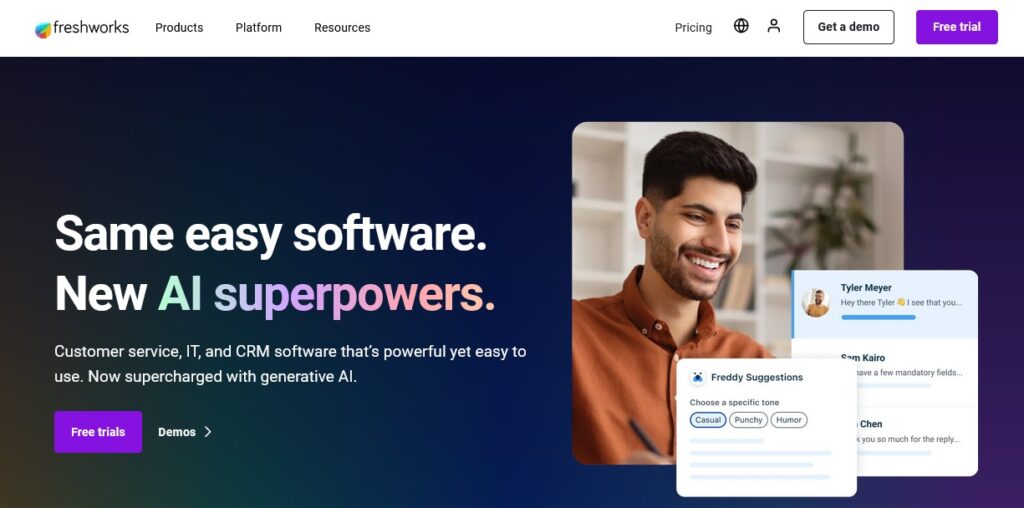
Freshworks provides an integrated platform for handling customer support, sales, and marketing.
Key features include Service Ticket Management, ensuring efficient resolution of customer queries, and Real-Time Analytics, offering insights into customer interactions and service performance.
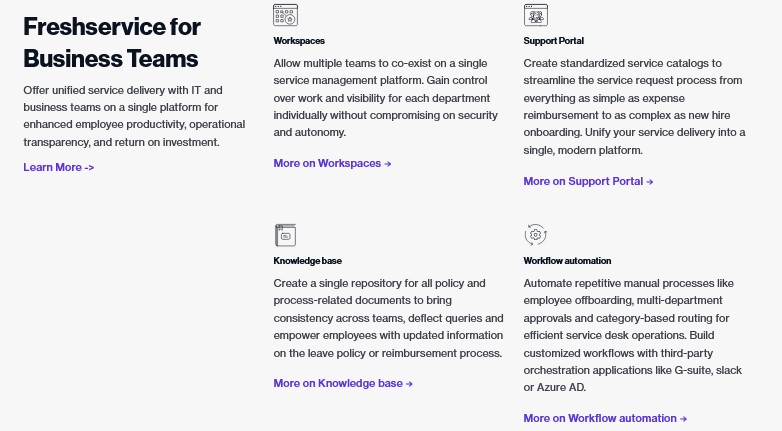
Workflow Customization allows teams to tailor the software to their specific processes and needs.
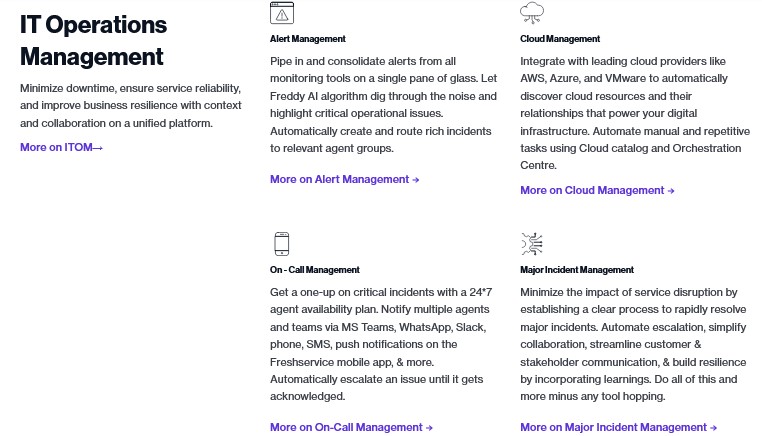
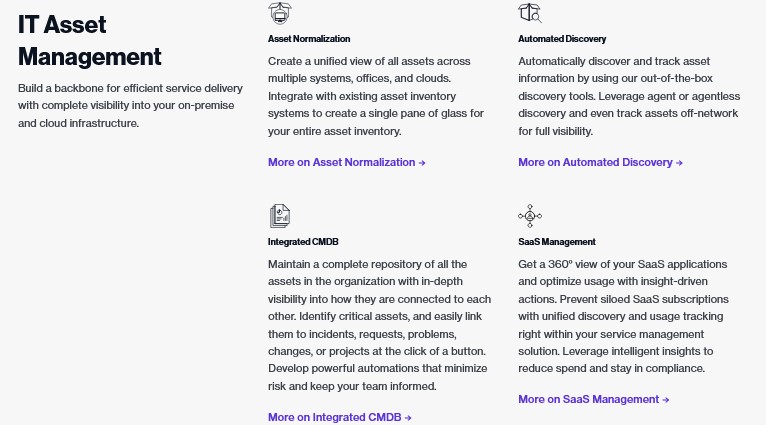
Pros
- Multi-Channel Communication: Offers a unified platform for managing customer communication across various channels.
- CRM Integration: Seamlessly integrates with CRM systems, providing a holistic view of customer interactions.
- Automated Ticketing System: Enhances customer support efficiency through automated service ticket management.
Cons
- Pricing: Advanced features can be costly, potentially putting them out of reach for smaller businesses.
- Learning Curve: The comprehensive nature of the tool may require some time for users to fully grasp its functionalities.
User Experience
Users generally report a positive experience with Freshworks, particularly noting its effectiveness in customer support automation and the convenience of having multiple functions in one platform.
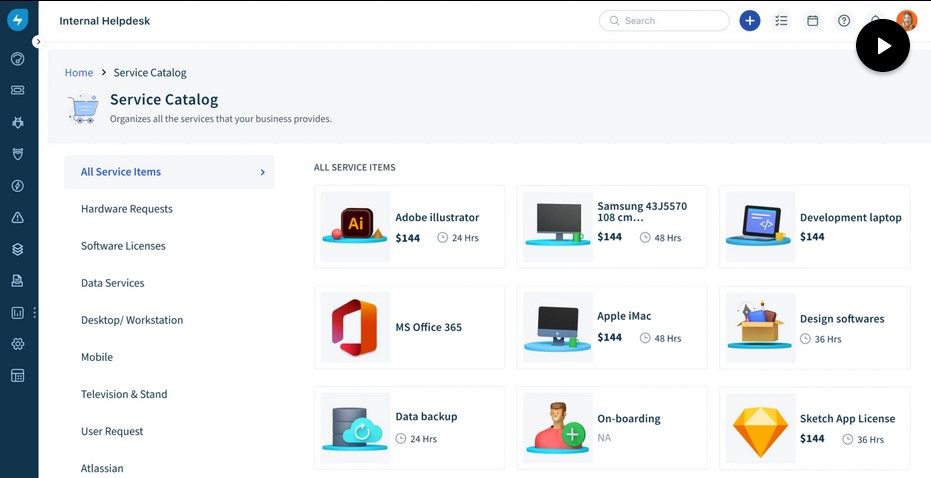
Pricing Plan
Freshworks operates on a tiered pricing model. The basic plan is often free or low-cost, catering to small businesses, while more advanced plans with additional features are priced for medium to large enterprises.
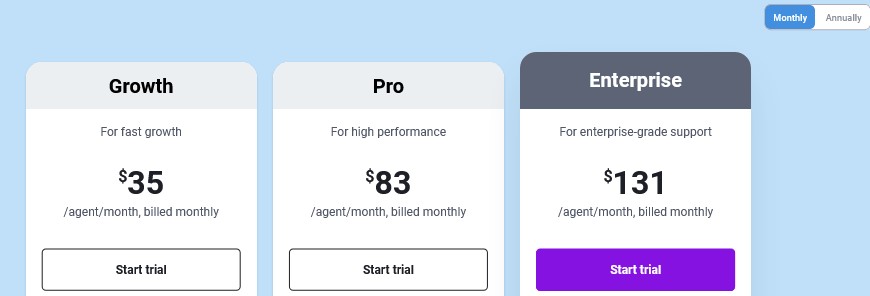
7. Semrush
Semrush – Best for SEO & Market Analysis
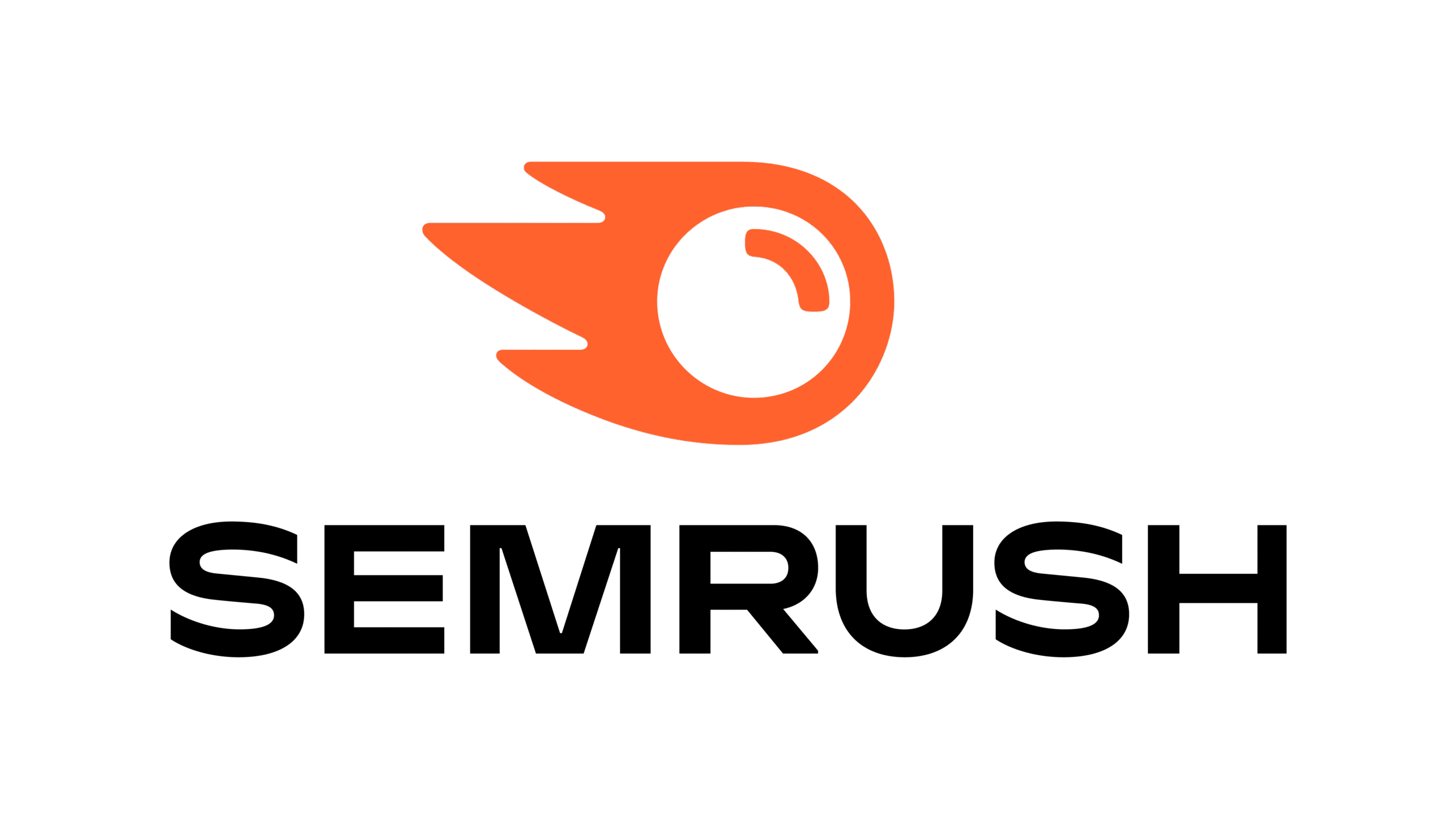
Ryanshody’s Pick for Digital Growth
With Semrush AI, you get:
- Advanced SEO and keyword analysis tools
- AI-driven market research and competitor insights
- Smarter online marketing strategies backed by data
Semrush, widely acclaimed as one of the best AI tools for product managers, specializes in SEO Optimization and Market Analysis, making it an indispensable tool for digital marketing and online strategy.
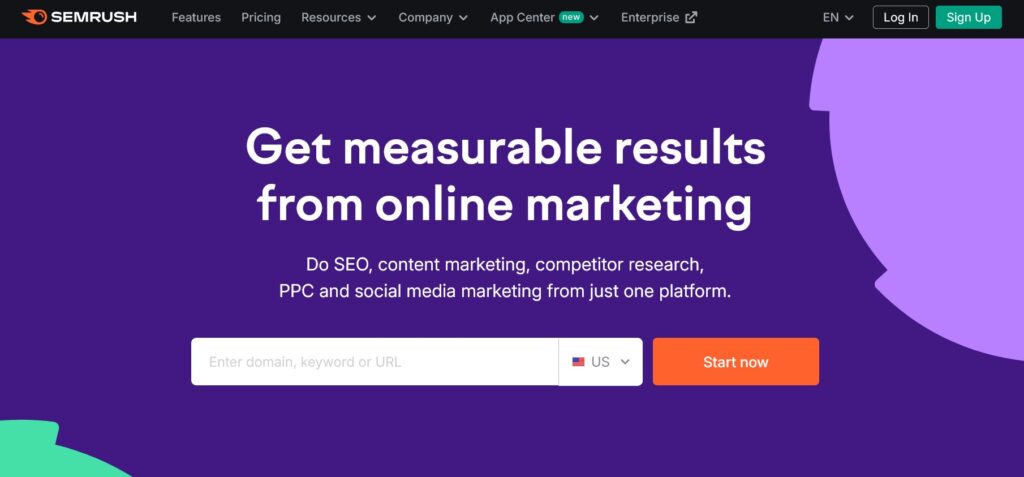
Semrush offers an extensive range of features for enhancing online visibility and marketing strategies. It excels in Content Marketing Strategy development, Competitor Research, Keyword Tracking, and Traffic Analytics.
This tool provides detailed insights into market trends, competitor strategies, and customer preferences, which are crucial for formulating effective marketing and SEO strategies.
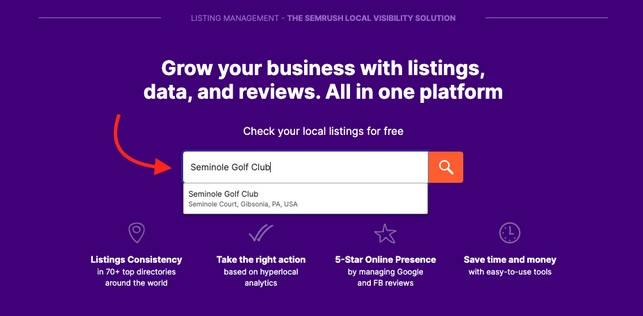
Pros
- Comprehensive SEO Toolkit: Offers an array of features for SEO optimization, including site audits and backlink analysis.
- In-depth Market Analysis: Provides valuable data on market trends and competitor performance.
- Effective Content Marketing Tools: Assists in developing and tracking content strategy.
Cons
- Pricing: The tool can be expensive, especially for small businesses or individual users.
- Complexity: The wide array of features may be overwhelming for new users, requiring a learning curve.
Pricing Plan
Semrush offers several pricing tiers, catering to different needs and budgets, from a basic plan for startups to more advanced options for large enterprises.
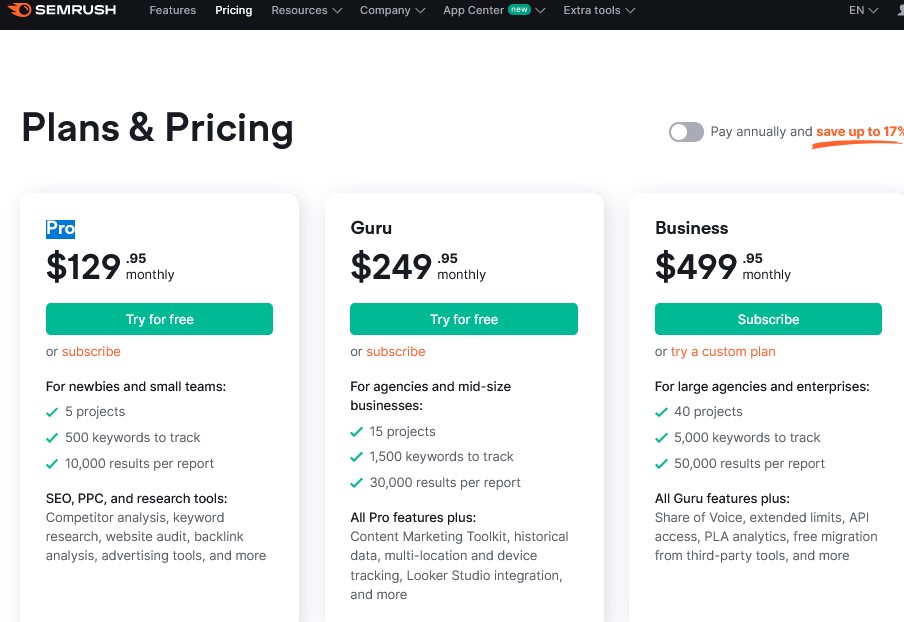
User Experience
Users generally report a positive experience with Semrush, praising its comprehensive features and the valuable insights it provides into SEO and market analytics. The tool’s ability to track and analyze a vast amount of data makes it a favorite among product managers and digital marketers.
Conclusion/Summary (best AI tools for product managers )
The exploration of various platforms confirms that the best AI tools for product managers offer an extensive range of functionalities tailored to enhance efficiency, streamline workflows, and provide deep insights into market trends and customer behaviors.
From Trello (Butler)’s workflow automation to Semrush’s SEO optimization, each tool brings a unique set of capabilities that cater to different aspects of product management.
HubSpot excels in CRM and marketing automation, while Monday.com is renowned for its visual project planning and team collaboration features.
Freshworks stands out for its customer support automation, and Asana for its task management and milestone tracking. The common thread among these tools is their ability to simplify complex tasks, provide real-time analytics, and facilitate effective decision-making.
By leveraging these AI tools, product managers can significantly enhance their productivity, optimize their strategies, and drive successful outcomes in their projects.
FAQs on Best AI Tools for Product Managers
1. What are the best AI tools for product managers? The best AI tools for product managers include Trello (Butler) for workflow automation, Asana for task management, Monday.com for visual project planning, HubSpot for CRM and marketing automation, Freshworks for customer support automation, and Semrush for SEO optimization.
2. How do AI tools like Trello (Butler) enhance productivity for product managers? Trello (Butler) enhances productivity by automating repetitive tasks and streamlining workflow processes, allowing product managers to focus on more strategic aspects of their projects.
3. Can Asana help in team collaboration for product management? Absolutely. Asana is designed to improve team collaboration with features like task assignments, milestone tracking, and real-time updates, making it easier for teams to work together effectively.
4. Are AI tools like Monday.com user-friendly for beginners in product management? Yes, Monday.com is known for its user-friendly interface, making it suitable for beginners. It offers visual project planning tools and customizable workflows that are easy to understand and use.
5. How does HubSpot assist product managers in marketing automation? HubSpot provides a range of marketing automation tools, including email marketing, social media management, and lead generation, which help product managers in streamlining their marketing efforts and tracking performance.
6. Is Freshworks suitable for small business product management? Freshworks is versatile and caters to businesses of all sizes, including small businesses. Its customer support automation and multi-channel communication tools are particularly beneficial for managing customer relationships efficiently.
7. What makes Semrush a valuable tool for product managers in digital marketing? Semrush offers comprehensive SEO optimization, market analysis, and content marketing strategy tools, making it invaluable for product managers focusing on digital marketing and online presence.
8. Do these AI tools require technical expertise to use effectively? While some familiarity with technology is helpful, most of these AI tools are designed with user-friendly interfaces and provide extensive support and learning resources to assist users in maximizing their benefits.

